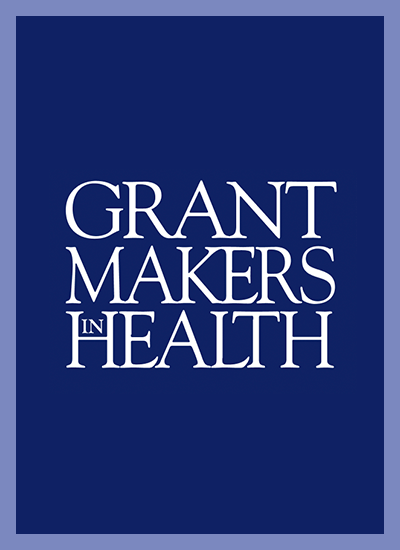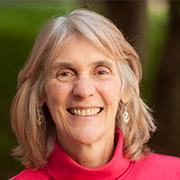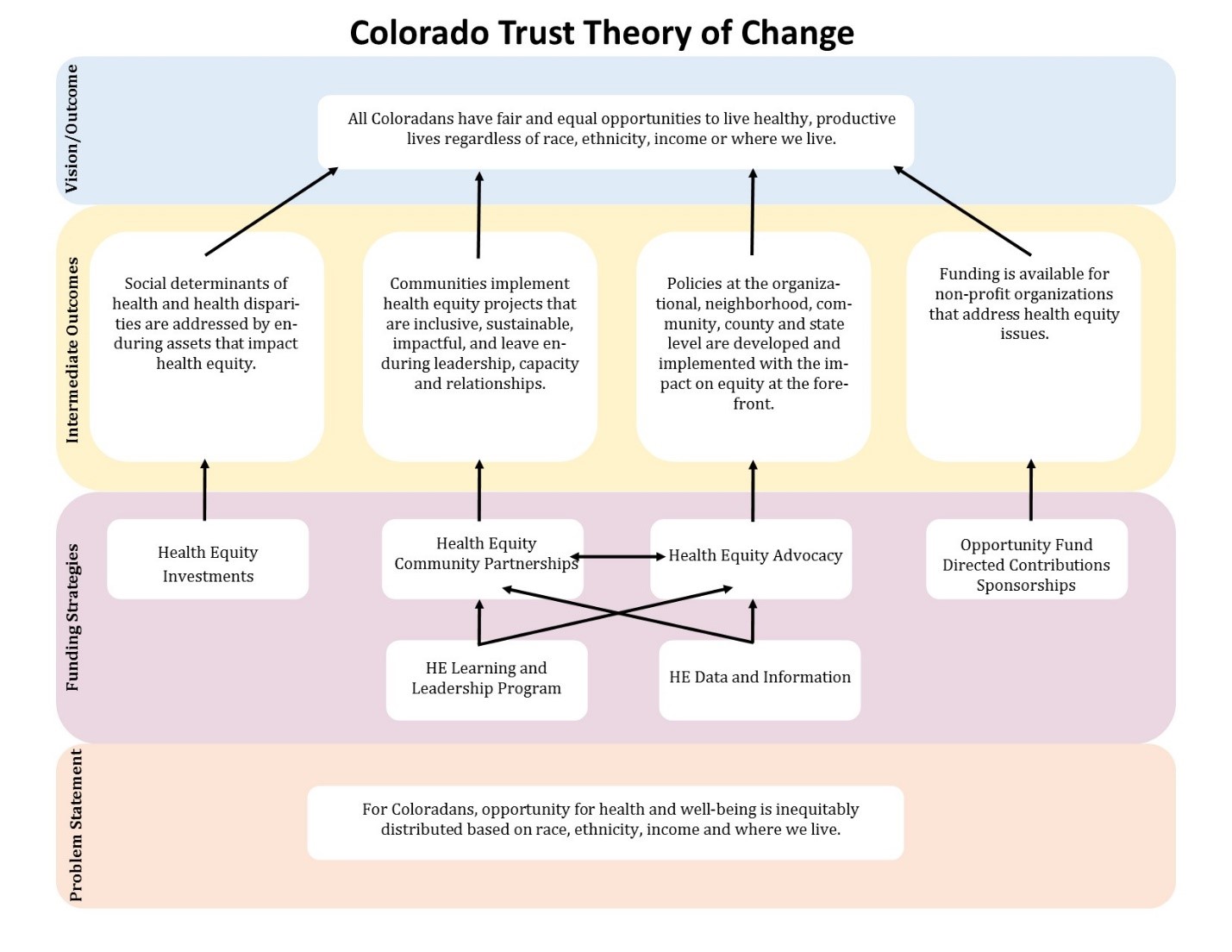June 2018

Nancy Csuti, Vice President of Research, Evaluation & Strategic Learning, The Colorado Trust
Each year, GIH asks health funders to share their thoughts on our annual conference theme. This year, we’ve asked evaluators from foundations to reflect on our 2018 conference theme, Navigating Currents of Change.

We at The Colorado Trust agreed on our new vision (that all Coloradans should have fair and equal opportunities to lead healthy, productive lives regardless of race, ethnicity, income or where we live), without recognizing the tremendous impact it would have on the staff, the board, and our grantees. Embracing a resident-led approach to reducing health inequities in communities would dramatically alter the way we did grantmaking. We expected this. Naming ourselves a “health equity foundation” would change who we might fund. We expected this. We did not, however, anticipate the changes that would need to take place within each of us who make up the staff of the foundation. While navigating any change can be challenging, perhaps the roughest waters appear when a person realizes the change that needs to happen is within themselves.
Changing our vision to one calling for health equity has required us to undergo staff and board diversity, equity, and inclusion trainings to understand what equity is and how we, as foundation professionals, are part of a system that plays a role in perpetuating the inequities that currently exist. It has been at times a difficult journey, one with many lessons. Of the lessons we have learned, two stand out:
- Leadership needs to guide the journey. The Trust’s internal equity work started with the CEO, who brought the board and staff along. This has been critical to keeping the work front and center, to devoting the necessary resources of time and money, and to the willingness to listen and act when changes are required to move the work forward.
- Without the right staff, the work will not happen. Organizations are made up of people, and changing the culture requires the work of everyone. New hires and existing staff must value equity: grantmaking staff, finance staff, and administrative staff. Everyone doing work with and for the foundation must value equity as well, including vendors and consultants. It may be tempting at times to shift the responsibility for understanding and embracing equity onto staff who interact most often with grantees and community members. When grants management, finance staff, or consultants ignore the importance of equity work, however, the consequences can, at best, slow down the culture change and, at worst, do considerable damage to the work.
What does all this mean for evaluation? As with other staff, the evaluation staff at The Colorado Trust continually participate in equity training and try to bring that lens to all of our work. Key questions we are working to address that significantly influence our evaluation work are such things as: Who decides what counts as impact? Who decides what to measure? What rights, if any, do the people in the community doing the work and whose lives will be impacted by the results have to the work itself? Can we as a foundation embrace equity and still control the dissemination of the results of the work? When we say “our work,” who are we talking about—the “we” who have paid for it, the grantees who are doing it, the community members who are living it, or some combination of all three?
As evaluators, our job at times is to challenge the status quo, play devil’s advocate, and continue to ask questions. Asking questions such as those above is one of the roles we play in navigating change. Measuring impact, difficult in any social change effort, can be even more challenging when attempting to apply an equity lens. For some evaluators, embracing a narrative may feel too squishy. And if community members have a say in what is the true impact of their work, narrative may be what emerges. Broadening what is thought of as “real” data is a challenge that evaluators can tackle and can help others, such as board members, embrace. Seeing alternative ways of looking at data, as well as looking at what can be considered data, are critical steps toward equity. And always, taking data and making actionable information from it when its needed by staff and board (rather than a year later), is critical for helping with navigating change.
Below is our current theory of change for how the work of The Colorado Trust will lead to health equity. Looking at this, one might ask if there is a theory of change for how the foundation itself will become a health equity foundation. The foundation is made up of people: staff and board. What is required of all of us to understand and embrace equity? How will we know we’re on the right path? Can we achieve the goals of our grantmaking theory of change without traveling our own journey as individuals? Asking questions leads us to more questions, but the more we ask and challenge ourselves, the smoother the waters will be toward the change we all need.

